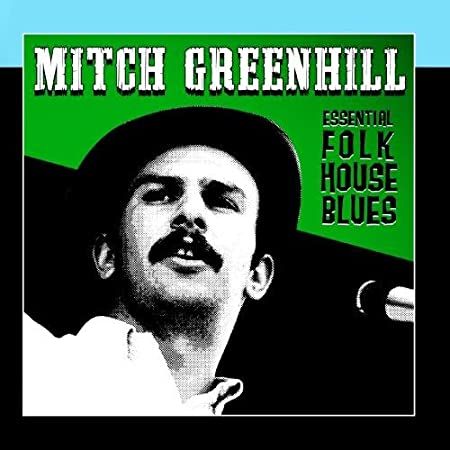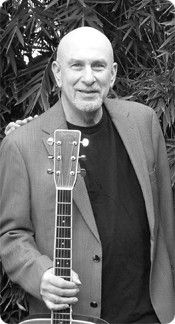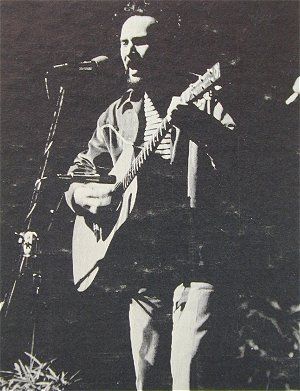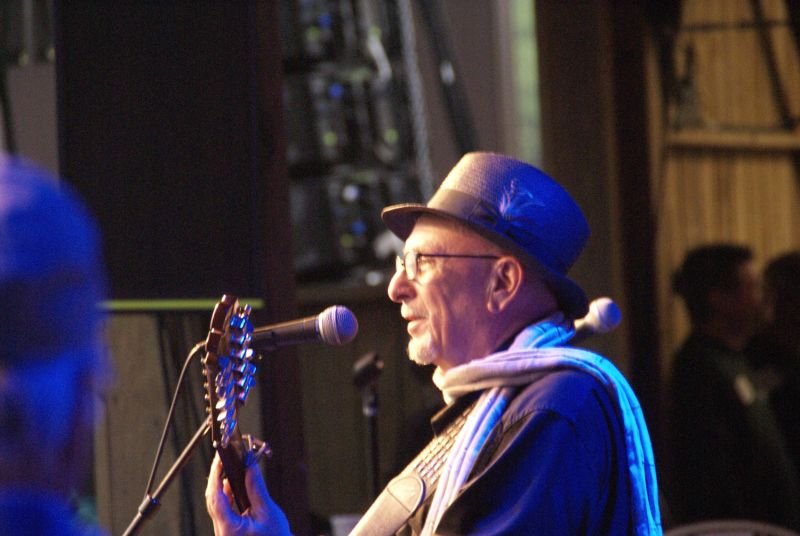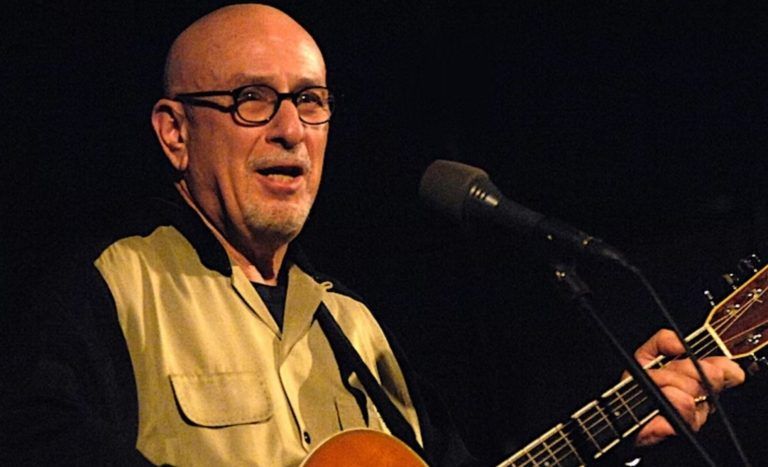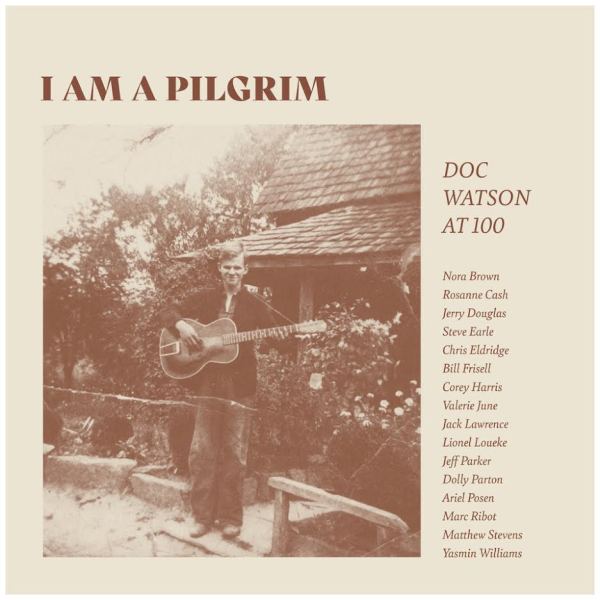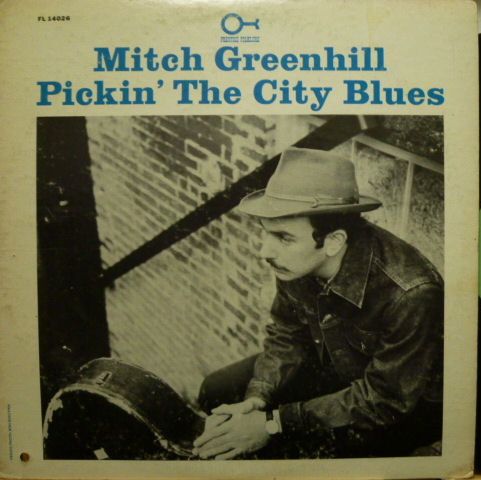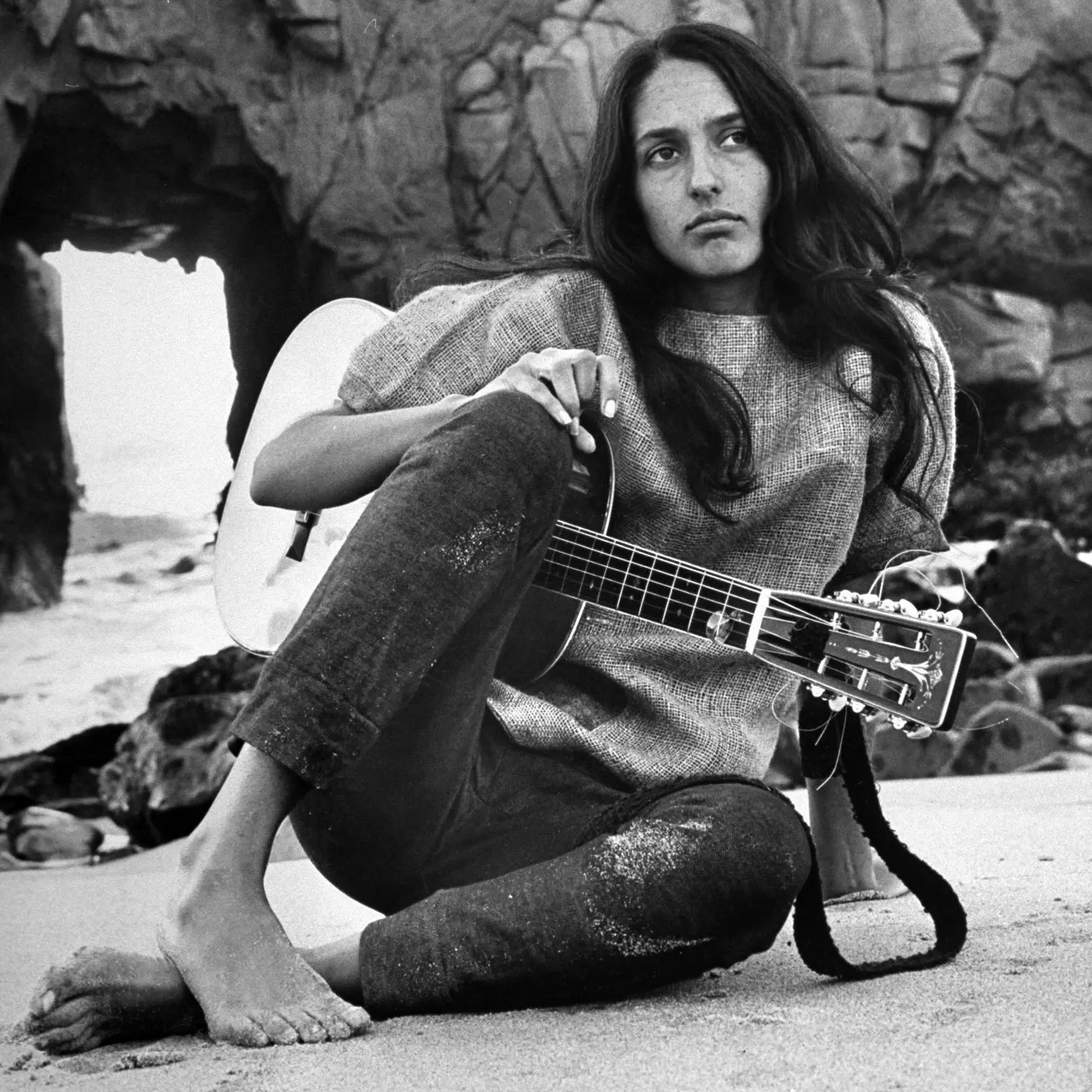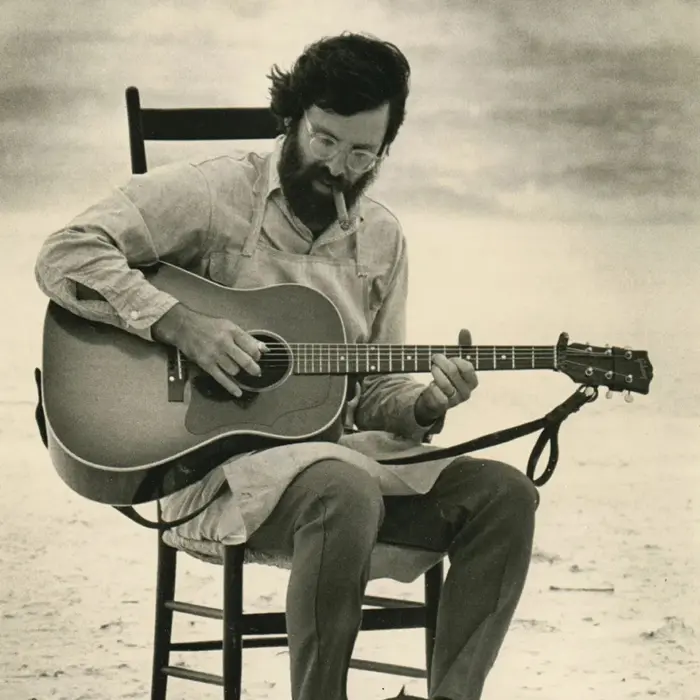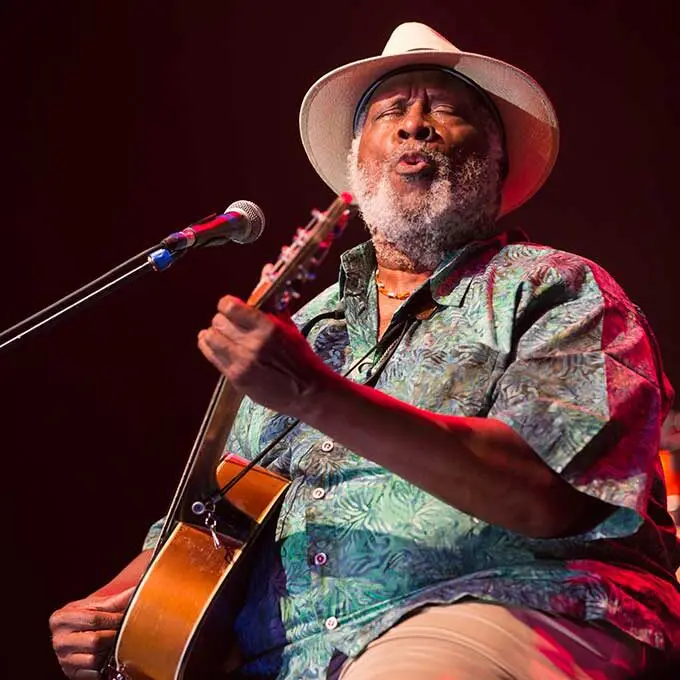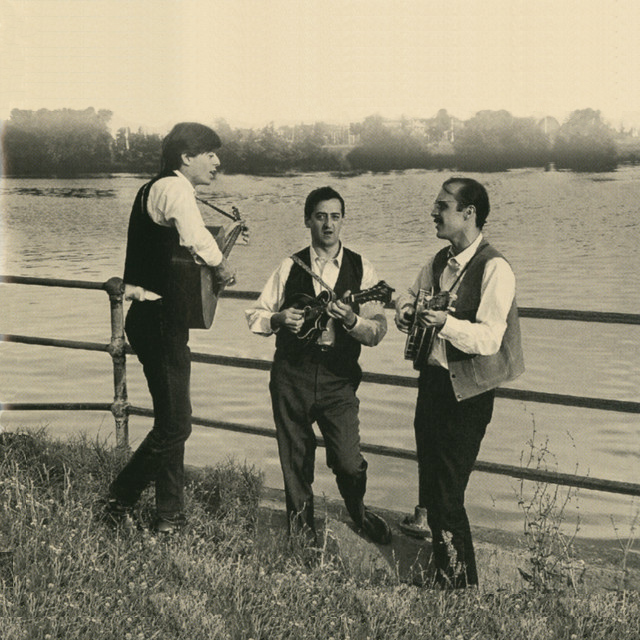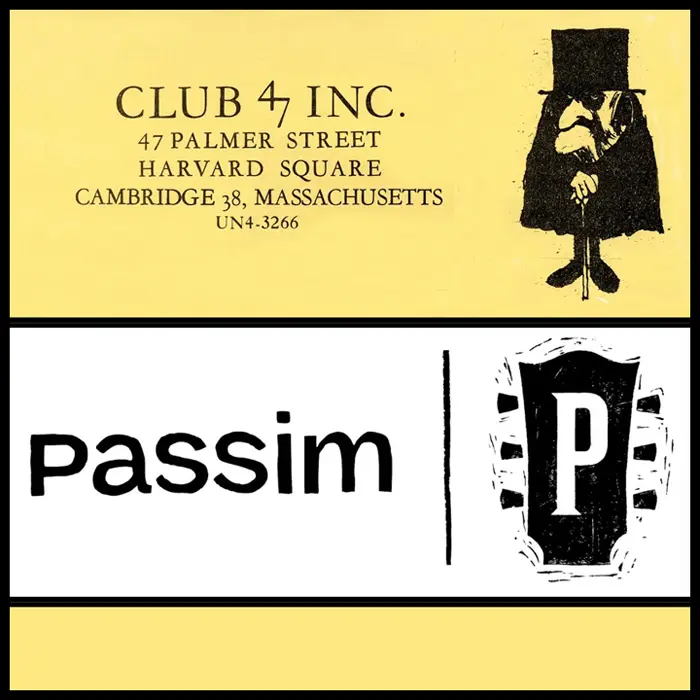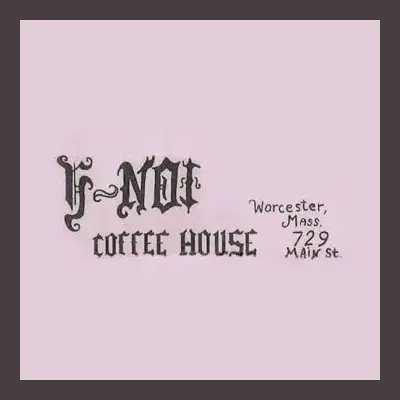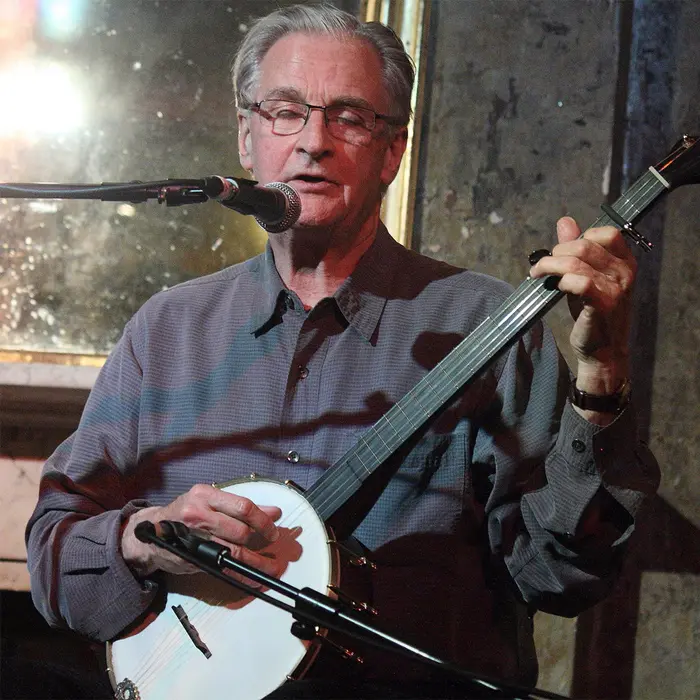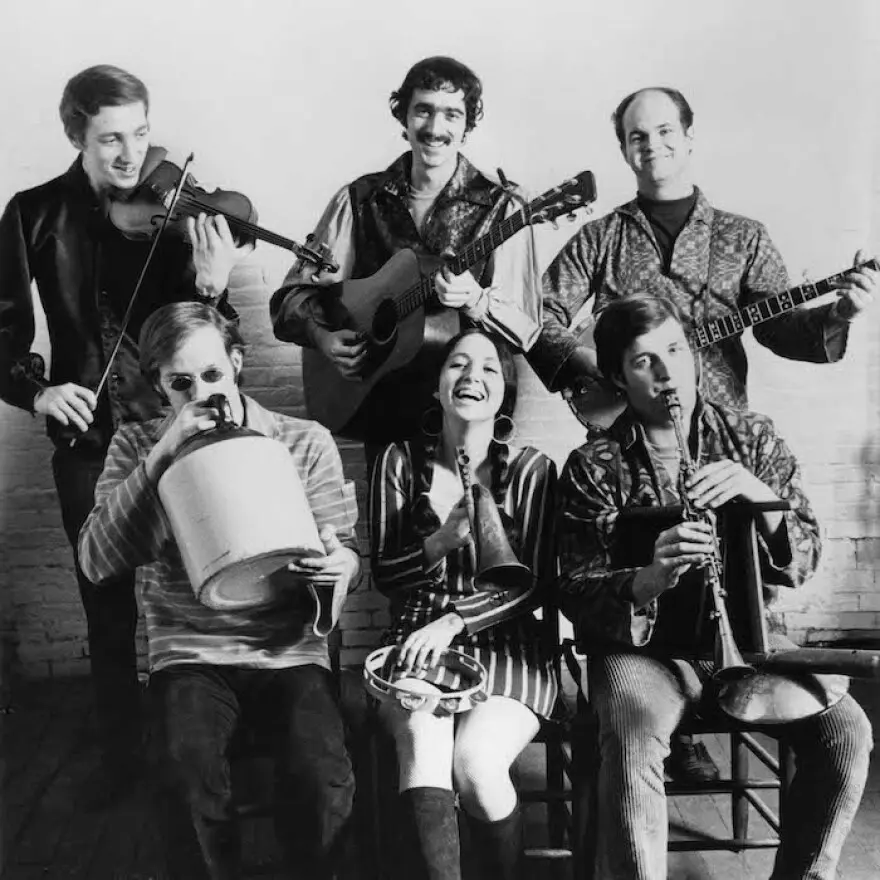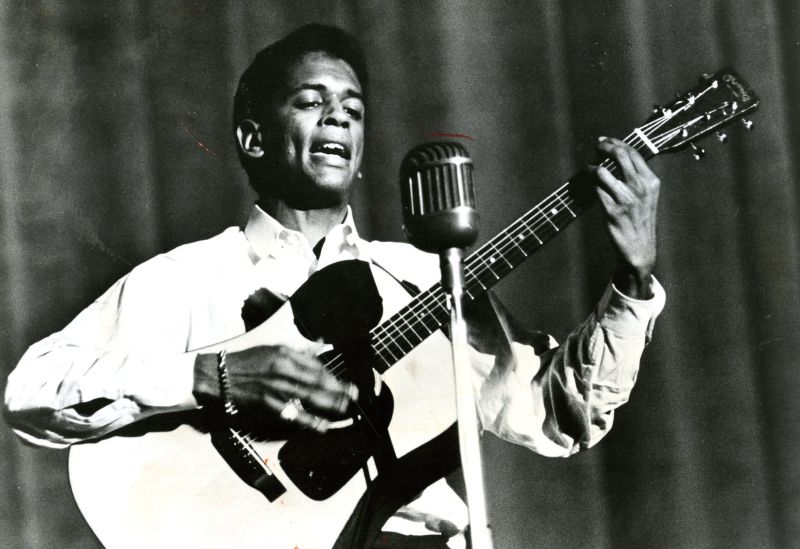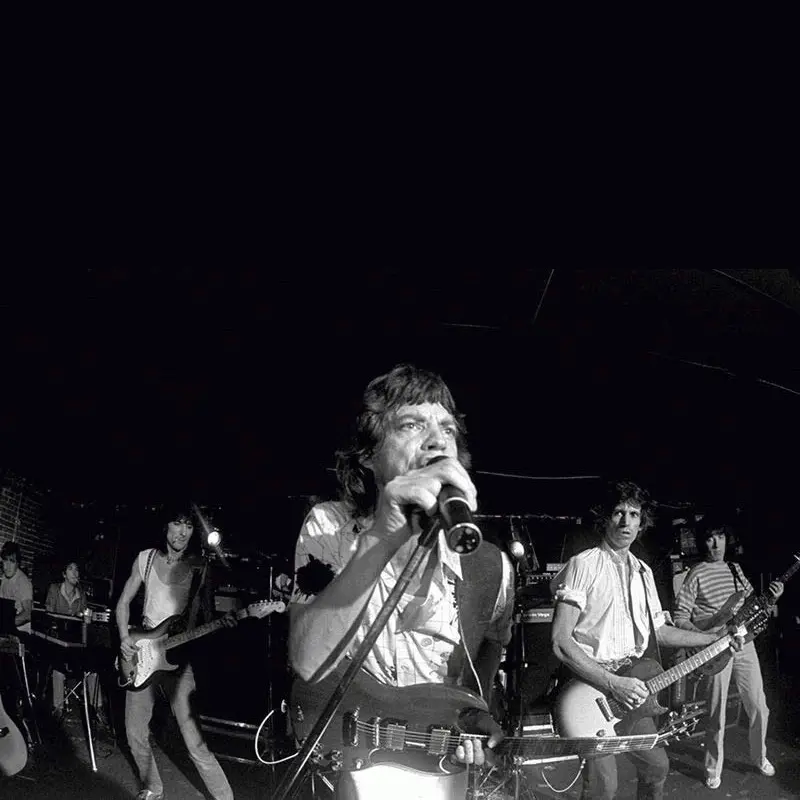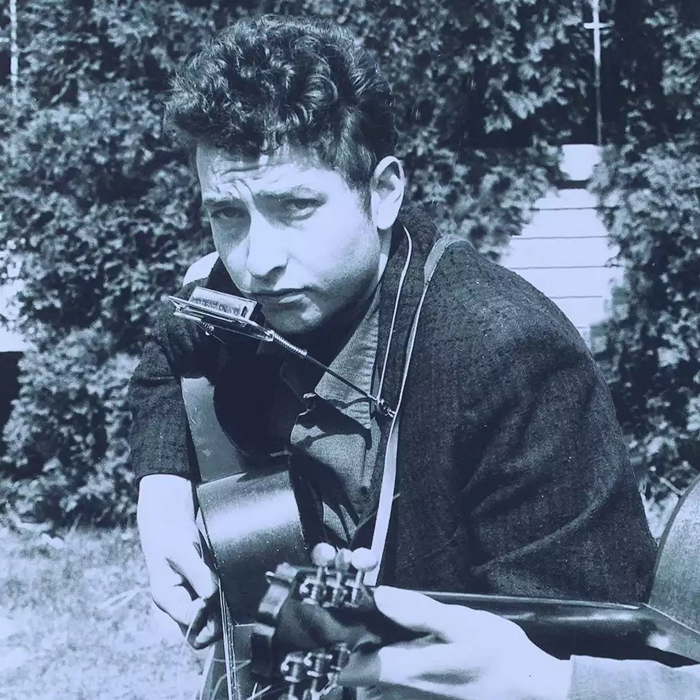Mitch Greenhill
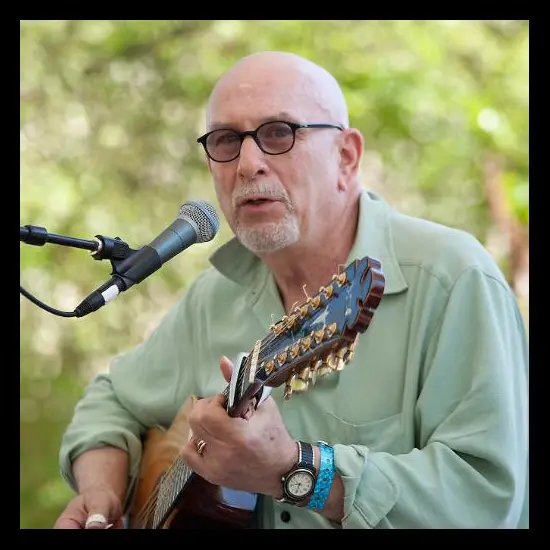
Folk musicians and fans alike might find themselves jealous of Mitch Greenhill’s extraordinarily unique upbringing. While most people grow up listening to their musical heroes on the radio and on records, watching them on TV, seeing them in concert or, if they’re lucky, getting close enough to score an autograph, Greenhill was elbow-to-elbow with his musical idols and influences from his early teens – in the comfort of his own home.
“When Pete Seeger and Sonny Terry stepped into the family living room, I was an impressionable 13-year old,” he writes in his memoir Raised by Musical Mavericks (Hillgreen, 2020). “They became the first in a series of houseguests and musical mentors, to be followed by Reverend Gary Davis, Doc Watson, Lightnin’ Hopkins, Merle Travis, Eric von Schmidt and others. My father had just embarked on a career in the music business that would include managing artists like Joan Baez and presenting artists like Bob Dylan. And as our family changed, along with the culture writ large, I was buffeted about in the wake.”
Born in Brooklyn on March 20, 1944, and raised in Dorchester, Massachusetts, from age eight, singer-songwriter-guitarist-banjoist-producer Greenhill – who’s recorded eight albums of his own and produced over a dozen for others – is the son of renowned promoter-manager Manny Greenhill, who founded Folklore Productions in 1957 and was a towering figure on the Boston-area folk-country-bluegrass-blues scene for almost four decades. A parade of both extremely well known and relatively unknown artists stayed at the Greenhill’s home whenever they were in the Boston area, with Greenhill’s parents always encouraging their son’s interactions with them and his interest in following in their paths.
MUSICAL BEGINNINGS, FIRST PERFORMANCES
Greenhill says he first fell in love with music at age five when his mother took him to see bass-baritone Paul Robeson sing at a children’s concert in Manhattan. “At that moment, I had this feeling that I wanted to be there,” he’s said. “I wanted to be inside that music.” At age 13, when his lifelong passion for folk, country, bluegrass and blues began to blossom, his tutelage began in earnest when he learned his first guitar chords from Pete Seeger, Odetta showed him how to slide up the neck for a ringing E7 chord and Reverend Gary Davis taught him on how to wrap his thumb around the neck for a thicker C7 chord. Throughout high school, Greenhill immersed himself in the flourishing Cambridge folk scene and was particularly drawn to songs by Baez, Dylan and Taj Mahal.
In the fall of 1961, the 18-year old Harvard freshman started performing weekly at Club Mount Auburn 47 – which became Club 47 in 1963 and Passim in 1969 – and in December that year he appeared at the debut Boston Folk Showcase at Bates Hall Theatre along with the Charles River Valley Boys and others. He played regular Club 47 gigs through early 1966 while also performing at area venues including Boston’s Café Yana, The Loft and The Odyssey, Sanders Theatre in Cambridge, Chum’s Coffee House in Waltham, Y-Not Coffeehouse in Worcester and Ballad & Banjo in Hyannis. By mid-1966, Greenhill was touring along the eastern seaboard and on the west coast.
PICKIN’ THE CITY BLUES, SHEPHERD OF THE HIGHWAYS
In 1964, Prestige/Folklore issued his debut, Pickin’ the City Blues, featuring him on guitar and vocals, washboardist-guitarist Geoff Muldaur (of Jim Kweskin & The Jug Band) and bassist Bill Lee (film director Spike Lee’s father) and in 1966 he appeared with singer-songwriter Rosalie Sorrels at the Newport Folk Festival.
In 1967, Prestige/Folklore released Greenhill’s second album, Shepherd of the Highways, a collection of instrumentals featuring cover art by von Schmidt, and later that year he played guitar on Jackie Washington’s album Morning Song. In 1969, Greenhill produced von Schmidt’s LP Who Knocked the Brains Out of the Sky, his first production credit, for which Dylan wrote the liner notes.
JOINING FOLKLORE PRODUCTIONS
In 1976, Greenhill began managing and booking Folklore artists including seven-time Grammy winner Doc Watson, and around 1978 he started producing albums for Watson and English singer-songwriter John Renbourn while continuing to perform regularly, often with his songwriting partner Mayne Smith, with whom he appears on Mitch Greenhill & Mayne Smith: Live 1976, independently released in 2015.
Over the past five decades, Folklore has represented an eclectic assortment of acts including klezmer group The Klezmatics and traditional Irish band Lúnasa while publishing songs written by Joan Baez, Rev. Gary Davis, American primitive-guitar pioneer John Fahey and one-man-band legend Jesse Fuller, some of which were recorded by The Rolling Stones, Dylan and the Grateful Dead.
LOOK AWAY!, LIVE & PICKIN’, STORM COMIN’, THEATRE, FILM
In 1978, Greenhill produced Doc and Merle Watson’s album Look Away! for the United Artists label, and in 1979 he produced another UA album of theirs, Live & Pickin’, plus their single “Big Sandy/Yellow Britches,” which won a Grammy for Best Country Instrumental. After he and Mayne Smith recorded Storm Coming for Bay Records in 1979, Greenhill began composing for theatre productions and film and his music was featured in the films The Long Riders (1980) and Safe (1995) along with the 2002 Broadway play “An Almost Holy Picture” starring Kevin Bacon.
1980S PRODUCER CREDITS, BACK WHERE WE’VE NEVER BEEN
In the 1980s, Greenhill spent most of his time producing albums for others, which he’s continued to do since, including Doc and Merle Watson’s Guitar Album (1981) and Red Rocking Chair (1986), The John Renbourn Group’s Live in America (1982) and The San Francisco Mime Troup’s The Album (1983), all on the Flying Fish label. In 1985, Greenhill and Mayne Smith recorded Back Where We’ve Never Been for Bennett House Records.
TAKING OVER FOLKLORE, WHEEL OF FORTUNE, WATSON COUNTRY
In 1996, when his father Manny died at age 80, Greenhill took control of Folklore Productions – founded 39 years before – and his son Matthew joined the company as an agent-manager, focused on bringing international acts to the organization. Greenhill performed and recorded sporadically during the decade while producing John Renbourn and Robin Williamson’s Grammy-nominated LP Wheel of Fortune in 1993 for Flying Fish and Doc and Merle Watson’s Rounder Records release Watson Country in 1996, for which the International Bluegrass Music Association gave him their Best Liner Notes Award.
2000S REISSUES, ALBUMS, PRODUCER CREDITS
In 2000, Fantasy Records reissued Greenhill’s 1964 and 1967 Prestige/Folklore albums and since then Greenhill has recorded and self-released five collections of fresh material: String Madness (2014), featuring guitarist-vocalist Peter Spelman and mandolinist Bob Appelbaum; The Lost Frontier (2014); Eye of the Beholder (2015); Blues of an Ancient Bard: A Song Cycle (2020), adapted from poems by William Blake; and Mitchology (2021).
He worked as associate producer on Earl Scruggs’ and Ricky Skaggs live album The Three Pickers (New Rounder, 2003) and produced Rosalie Sorrels’ Rosalie Sorrels and Friends: My Last Go Round (Red House, 2004) and Doc & Merle Watson’s Songs Doc Didn’t Sing (FLi Records, 2020).
I AM A PILGRIM: DOC WATSON AT 100
In 2023, Greenhill was the executive producer of the LP I Am a Pilgrim: Doc Watson at 100 (FLi/Budde Music), a 15-track tribute to the enormously influential North Carolina-born singer-songwriter – who passed away in 2012 and would have turned 100 on March 3, 2023 – that features a doubly impressive list of artists from a variety of genres including Dolly Parton, Rosanne Cash, Nora Brown, Steve Earle and Bill Frisell.
“I want people to get a sense of how influential Doc’s music has been beyond the bluegrass, old-time, country world,” Greenhill told Folk Alley, a listener-supported internet radio station. “I’m also hoping that people who are fans of some of the artists on the album will be introduced to Doc’s music and seek out Doc’s music.”
REFLECTIONS ON PERFORMING, RECORDING, PRODUCING
Asked in a 2020 interview about his most enduring memories after having spent 60 years performing, recording and producing, Greenhill referred to the Paul Robeson concert he saw over 70 years ago at age five. “In a sense, all the years since then have been a continuation of that journey, trying to get inside the music,” he said. “And to live there.”
(by D.S. Monahan)

